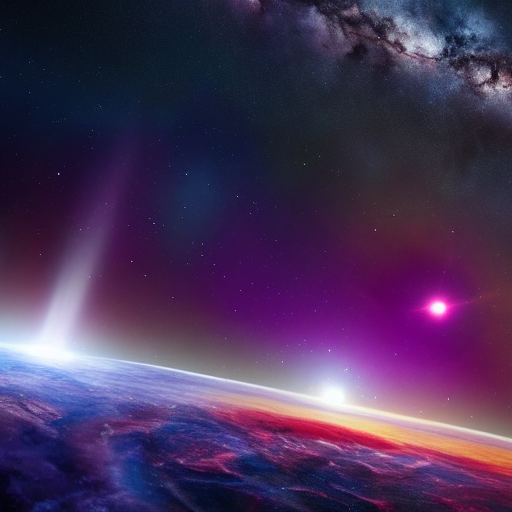Human space exploration and colonization of habitable planets have long been the stuff of science fiction dreams. However, as technology continues to advance, these dreams are inching closer to becoming a reality. Not only would venturing out into space open new frontiers for humanity, but it could also hold the key to sustaining our species and expanding life.

Firstly, human space exploration and colonization enable us to safeguard the future of humanity. Earth, as our only known habitable planet, faces multiple potential threats such as climate change, asteroid impacts, or even the possibility of nuclear war. By venturing out into space and establishing colonies on habitable planets, we increase the chances of survival for the human species. Should a disaster strike Earth, having separate self-sustaining colonies elsewhere would ensure our continuity.
Moreover, exploring and colonizing other planets also offer the opportunity to expand life. Each habitable planet harbors unique environmental conditions that may allow for the evolution of new species and ecosystems. By discovering and studying these environments, scientists could potentially unlock new knowledge and possibilities for life to flourish beyond Earth. This would not only diversify the pool of life but also provide invaluable insights into the origins and evolution of life on our own planet.
Additionally, human space exploration provides a fascinating opportunity to study the divergence of genetics between the same species on different planets. Over time, isolated populations on separate planets may undergo genetic changes due to varying environmental pressures. By comparing the genetic makeup of humans living on different planets, scientists could gain valuable insights into the ways genetics adapt to different environmental conditions. This knowledge would aid our understanding of evolution, genetics, and potential future adaptations that humans might undergo if they inhabit other planets long-term.
In conclusion, human space exploration and colonization of habitable planets hold immense potential for the future of our species. Not only could it provide a safety net for the survival of humanity, but it also offers the possibility of expanding life beyond Earth’s boundaries. Furthermore, studying the genetic divergence between humans on different planets could yield invaluable insights into evolution and genetics. As technology progresses, it becomes increasingly important to invest in space exploration and unlock the countless mysteries and opportunities that lie beyond our blue planet.
Congratulations, your post has been curated by @r2cornell-curate. Also, find us on Discord
Felicitaciones, su publication ha sido votado por @r2cornell-curate. También, encuéntranos en Discord
Congratulations!
You have recieved a coconutty upvote! 🥥
Thank you for contributing to the Blurt Blockchain!
Keep up the great work!
Curated by @outofthematrix!
Please take a moment to vote for my witness.
You can do this by logging into your wallet with your active key! 🗳️ https://blurtwallet.com/~witnesses?highlight=outofthematrix